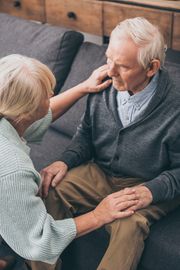A Brief Guide to Nursing Home Abuse

If your loved one is unable to live independently, you may have to transition them into a nursing home. While this can be a tough decision, it’s an essential one for family members who don’t have the ability to be full-time caregivers. Therefore, finding out that your senior loved one has encountered emotional abuse in their new home is understandably distressing. To protect your parent or grandparent from this form of trauma, use the following guide to learn more about nursing home abuse.
What Are the Signs of Abuse?
The key to identifying nursing abuse is visiting the facility often, as well as watching the staff and their interactions with residents. The staff may be condescending to patients, treating them like children, speaking over them, or shrugging off their questions. If your loved one claims they have been yelled at, made fun of, or mocked by their nurse or caregiver, they may have been a victim of emotional abuse.
When you speak to staff members, pay attention to the way they respond to you. If they seem unwilling to answer questions, answer with hostility, or don’t show any sympathy when you express concern for your loved one, they may be uninterested in the patient’s mental and emotional health.
What Are the Consequences?
 As a result of the abuse, nursing home residents may display personality changes. A social and fun-loving senior may become quiet and withdrawn, or an introverted resident may become outwardly aggressive. If your loved one seems significantly more anxious, sad, or angry, they may have been emotionally abused by nursing home staff.
As a result of the abuse, nursing home residents may display personality changes. A social and fun-loving senior may become quiet and withdrawn, or an introverted resident may become outwardly aggressive. If your loved one seems significantly more anxious, sad, or angry, they may have been emotionally abused by nursing home staff.
Unfortunately, this can lead to further consequences, such as clinical depression and self-harm. They may lose the will to take care of themselves. You may also notice sudden fluctuations in their weight, and anxious behavior like teeth grinding, finger sucking, or rocking. In extreme cases, nursing home abuse has led to cases of wrongful death.
What Is the Treatment?
If your loved one is being abused by nursing home staff, they should be removed from the facility immediately. Until you can find a suitable new space, allow them to stay in your home, and consider hiring an at-home caregiver to tend to their medical needs. Even after they are transferred to a different nursing home, make sure they are seeing a counselor or therapist who they can speak to about the abuse.
If your loved one was a victim of nursing home abuse, turn to Danny E. Darnall, Attorney at Law for help. This Elizabethtown, KY, lawyer can help you determine whether you have a personal injury or wrongful death lawsuit so that your family receives the compensation they deserve. He has over 40 years of experience fighting for justice, so you can expect calculated guidance and time-tested strategies. To learn more about his practice areas, visit the website. You can also call (270) 769-9179 to schedule an appointment today.
About the Business
Have a question? Ask the experts!
Send your question

